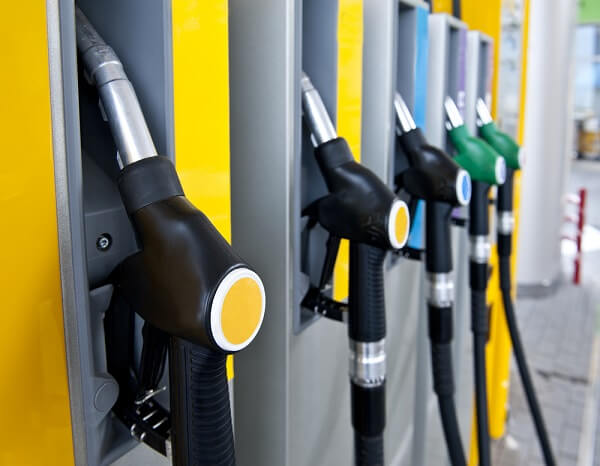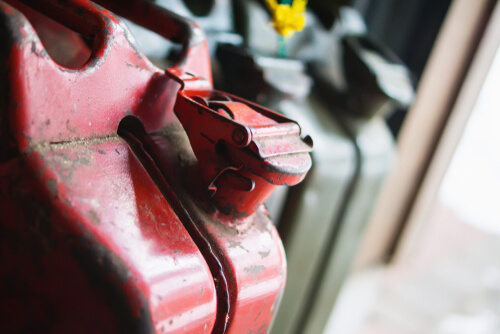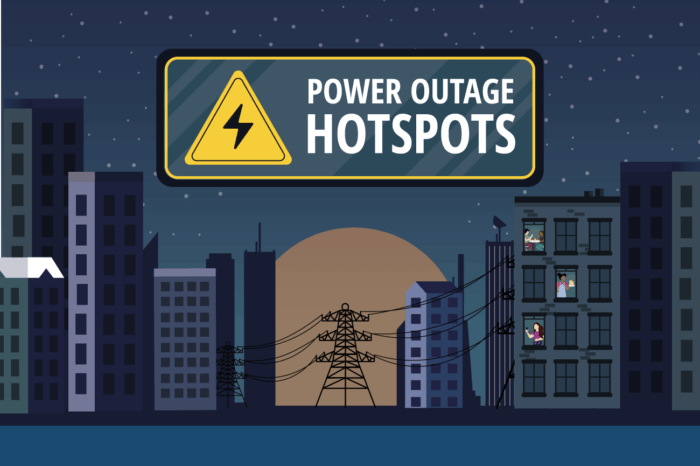
Have you ever felt tempted to stock up on litres upon litres of petrol when prices are low at the bowser? You’re in good company.
A survey of Royal Automobile Association (RAA) members found that when petrol was cheap, one in ten drivers would not only fill up their car, but also a 20-litre jerry can for safekeeping.1 That way, they have a storage of fuel at home they can access when the pump price increases.
While a thrifty plan, in theory, petrol doesn’t last forever. In fact, petrol that’s stored incorrectly or for long periods can do more harm for your hip pocket than good; especially when it comes to your car, lawnmower or other petrol-operated machinery.
How long does petrol last?
While petrol’s raw ingredient, crude oil, can last for millions of years, it won’t last more than a couple of years at most once it’s refined into petrol. What’s more, oxygen, heat and humidity can affect the condition of the fuel,2 which means petrol stored for a long time can essentially ‘go off’ after a while.
Can old petrol damage your car?
Expired petrol can cause damage to your car’s pistons during ignition, which makes it harder to start the engine and reduces your car’s performance when revving the engine.
Also, within just a few months, peroxides can form in the petrol in hot weather, which can then start to eat away at metal and rubber, such as the liner on fuel lines, copper in fuel pumps and rubber parts of hoses.3 This is bad news for cars you don’t use often or the petrol that sits in your mower.
As such, it’s important to only store as much fuel as you’ll need for the next month or so. If you want to dispose of bad fuel, you’ll need to contact the local council to find out where you can legally and safely discard it.4
How long does diesel last?
At temperatures over 30˚ Celsius, diesel typically lasts six to twelve months. Over time, sediment and gum will form when oxygen reacts with the fuel, so it’s important there’s as little air in the tank as possible when filling it up. Expired or ‘rotten’ diesel provides less power and can lead to a build-up of soot in parts of the engine, damaging your car, mower or truck.5
Diesel, like petrol, is a fuel that can expire. It’s important to store diesel fuel in a container designed to block out heat, water and air, which can speed up the expiry process. Under the right conditions, diesel can last up to twelve months, but by adding a diesel fuel stabiliser, you can make it last even longer.6
How long does fuel last in a jerry can?
When using the right fuel container, petrol can last up to one year, so long as the jerry can remains properly sealed. At 20˚ Celsius, fuel in a container with a broken seal lasts six months; at 30˚ Celsius, it lasts three months.7
How long does petrol last in a metal jerry can vs a plastic container?
Safety product supplier Safety 1 Industries suggests that for long-term fuel storage, metal jerry cans have an advantage over plastic ones. Plastic containers may expand and contract as temperatures change, and, over time, the fuel can begin to seep into the container and compromise the structural integrity of the plastic jerry can. However, plastic containers are safer in the case of a fire as they will melt, while a metal one can explode.8
Top fuel storage safety tips
Fuel is a flammable liquid and can be dangerous when not stored correctly. Here are some top petrol storing safety tips:
- only store fuel in a suitable container that complies with the joint Australian and New Zealand 2001 standards.9 Remember, plastic oil containers can build up static energy and cause a fire and are best avoided.10 Also make sure you use the right container for the type of fuel you are storing.
- do not completely fill the container, as petrol can expand in changing temperatures;
- store the container in a dry, cool place.11 Dave Petchell from iTechWorld states that you should not store the container in your house or your garage, and be sure to keep it away from any ignition source, like a barbeque, fireplace or area where power tools are being used.12
- when filling a mower or tank, the Queensland Government recommends you use a funnel to reduce spillage. Also, ensure you refuel outdoors in a well-ventilated area; 13 and when transporting a container of fuel, make sure it’s secured and not moving around during the trip. Typically, fuel containers are best secured in the boot instead of the cabin in case it leaks.14
Are you buying the cheapest fuel in your area?
The next time you need to fuel up, don’t risk spending more money than you need to by stopping at the first petrol station on your journey.
Our handy fuel price comparison service in the Simples app takes the hassle out of driving around for a great price. Simply enter your postcode and the type of fuel you’re after (unleaded, premium unleaded etc.), and we’ll show you which station is offering the best price!
Sources
[1] Cheap Fuel Is Being Stored At Home To Beat The Bowser Price Gouge. ACAPMA. 2019.
[2] Does Gasoline Go Bad? Marissa Shieh, Live Science. 2017.
[3] Does Gasoline Go Bad? Marissa Shieh, Live Science. 2017.
[4] Why does fuel go bad? Dave Petchell, iTechWorld. 2018.
[5] Does Diesel Fuel Go Bad? Diane Vuković, Primal Survivor. 2019.
[6] Guidelines for long term fuel storage of diesel and storage tanks. Bell Performance. 2018.
[7] Fact Sheet: A guide to storing fuel. British Petroleum. 2019.
[8] Plastic Vs Metal Gas Cans (And Which Is Best For Your Needs). Marcus Williams, Safety 1 Industries. 2016.
[9] Safe storage and handling of lawn mower fuel. Department of Education, Organisational Safety and Wellbeing, Queensland Government. 2018.
[10] Safe Fuel Handling. RACQ. 2019.
[11] Why does fuel go bad? Dave Petchell, iTechWorld. 2018.
[12] Safe Fuel Handling. RACQ. 2019.
[13] Safe storage and handling of lawn mower fuel. Department of Education, Organisational Safety and Wellbeing, Queensland Government. 2018.
[14] Safe Fuel Handling. RACQ. 2019.








